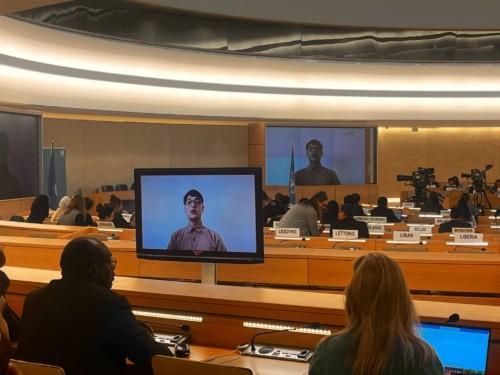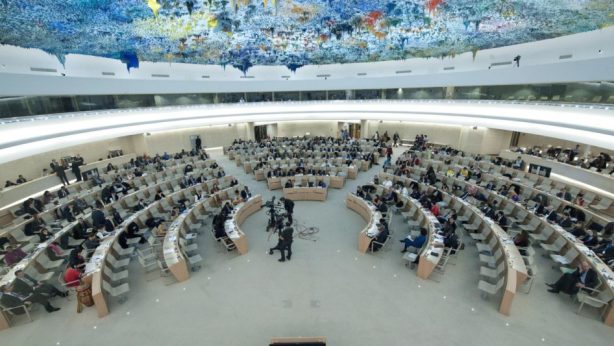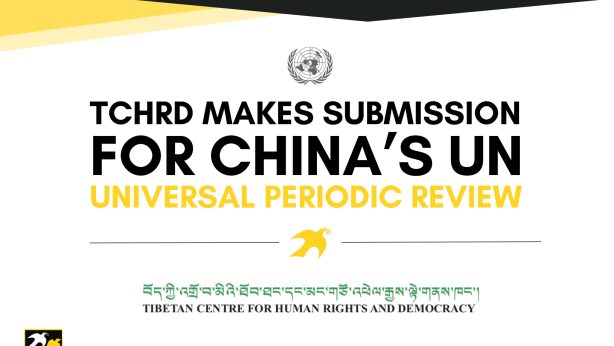TCHRD concludes a successful week of advocacy at the United Nations in Geneva
The Tibetan Centre for Human Rights and Democracy (TCHRD), represented by the executive director, Ms Tenzin Dawa, and researcher, Mr Ngawang Lungtok, actively participated in the working sessions of the 54th Human Rights Council session. This participation included attending side events, delivering oral statements, and meetings with various diplomatic missions and NGO partners based in Geneva, Switzerland.
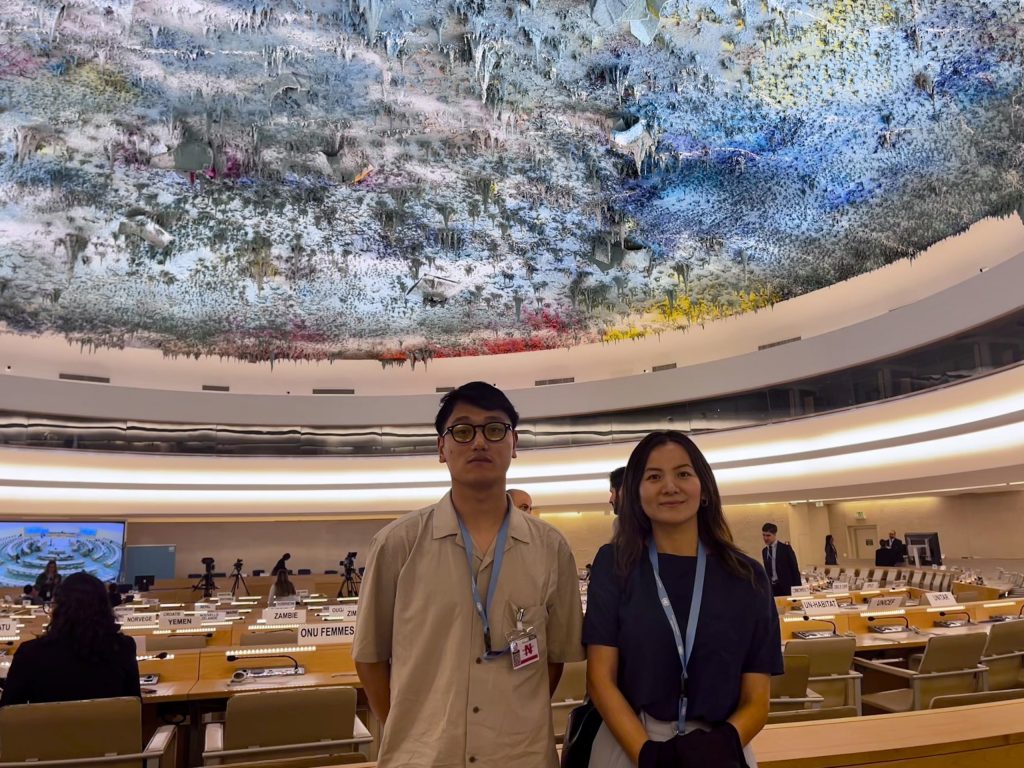
In the lead-up to the fourth cycle of the Universal Periodic Review (UPR) of the People’s Republic of China scheduled for January 2024, these engagements helped drew attention to the deplorable policies and actions undertaken by the Chinese government in Tibet.
Central to the deliberation and discussions were several critical issues, including the repression of religious freedom, systematic attacks on the Tibetan language, severe restrictions on freedom of expression and association, the issue of Dalai Lama’s reincarnation, and the denial of legal rights to detainees and political prisoners, including the deletion of records of Tibetan political prisoners from the Chinese national database.
Another particular concern of the discussion was the Residential Surveillance at a Designated Location (RSDL) clause within Chinese law, which consequently leads to enforced disappearances, arbitrary detentions, torture, and other forms of ill-treatment.
Ms Dawa and Mr Lungtok also raised the issue of transnational repression employed by the Chinese government to silence activists and dissidents beyond its borders.
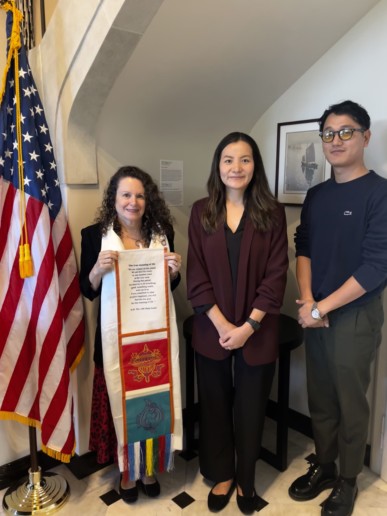
Additionally, the diplomatic briefings were convened with due consideration for the broader context of the upcoming UN Human Rights Council elections, in which participating states will exercise their right to vote, choosing 15 members from a pool of 47 available seats. China seeking re-election to the council is of particular concern primarily because it does not fulfil the membership criteria, in addition to its egregious human rights records.
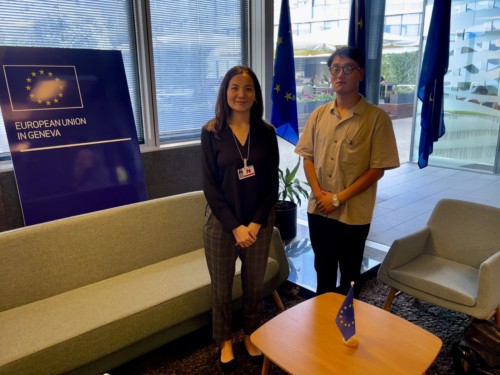
In light of these developments, on 27 September, researcher Mr Ngawang Lungtok delivered an oral statement on behalf of the Asian Dignity Initiative during the general debate under Item 4 on Human Rights Situations that Require the Council’s attention. The full text of the oral statement is appended herewith:
Mr President
The Asian Dignity Initiative (ADI) expresses serious concerns regarding Tibet’s deteriorating human rights situation. In recent years, the Chinese authorities unduly and disproportionately restricted and breached fundamental human rights, including freedom of expression, religion, cultural rights and peaceful assembly of Tibetans inside Tibet.
Exiled Tibetan activists and dissidents with relatives in Tibet have particularly become vulnerable to the PRC’s multi-year campaign of transnational repression to silence criticism and expand the PRC’s control over the diaspora communities. Efforts are being made on an alarming scale to cut off all contact between Tibetans living inside and outside Tibet by harassing, intimidating and threatening the lives of family members in Tibet, thereby ensuring that the rest of the world does not hear about the human rights situation in Tibet. Tibetans continue to get fired from their jobs, imprisoned, and tortured merely for staying in contact with relatives living abroad.
Moreover, the Chinese authorities are engaging in a widespread invisibilisation of Tibetan prisoners of conscience from the official records by systematically removing them from the national database. It is a clear indication that the Chinese authorities are silencing Tibetan voices, crushing legitimate dissent without following due legal process and erasing evidence of repression.
We call on this Council and the High Commissioner to address the human rights situation of Tibetans and to work together with China to ensure the protection of their fundamental human rights.
Thank you.
